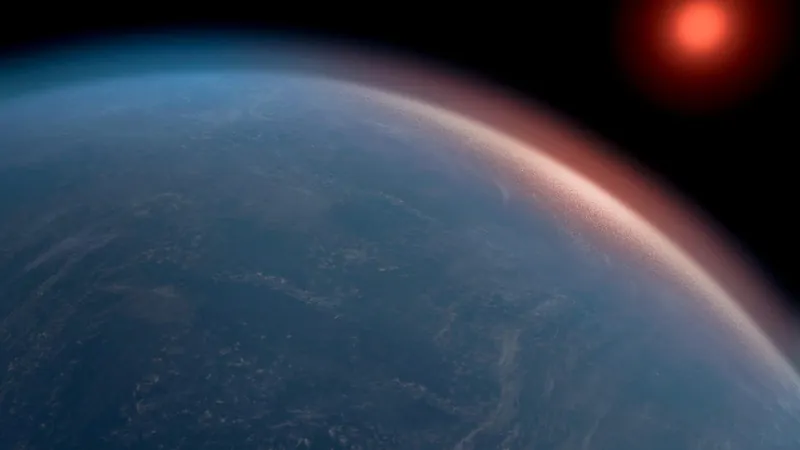
Astronomers Uncover Shocking Evidence of Possible Life on Distant Exoplanet K2-18b!
2025-04-27
Author: Wei
Astounding News from the Cosmos
Astronomers are on the brink of a groundbreaking discovery that could provide compelling evidence of life beyond our planet. Led by a team from the University of Cambridge, researchers have utilized data from the cutting-edge James Webb Space Telescope to identify chemical signatures that might signal life on the distant exoplanet K2-18b.
Chemical Clues Point to Alien Life?
The team discovered traces of dimethyl sulfide (DMS) and/or dimethyl disulfide (DMDS), molecules traditionally linked to life forms like phytoplankton. These findings have prompted the team to declare them as "the strongest evidence yet that life may exist on a planet outside our solar system." This exciting revelation was published in this week's Astrophysical Journal Letters.
A World Covered in Oceans?
This research opens the door to the tantalizing possibility that K2-18b could harbor oceanic environments on its surface. The scientists' abstract suggests that the existence of hycean worlds—planets with vast oceans and hydrogen-rich atmospheres—significantly enhances the search for habitable worlds throughout the universe.
Skepticism in the Scientific Community
Yet, not everyone is sold on the notion that these findings indicate extraterrestrial life. Notable science writer Corey S. Powell voiced concerns on social media, stating that there are non-biological sources for DMS, hence caution is warranted whenever evaluating claims of alien life.
What We Know About K2-18b
Located 124 light-years away, K2-18b is significantly larger than Earth—over eight times its mass—but remains smaller than Neptune. The pursuit of even rudimentary life on such planets could vastly increase the probability of discovering Earth-like worlds capable of supporting human life.
Cautious Optimism Ahead
Despite the excitement, experts like Christopher Glein, a leading geochemist, underscore the importance of tempering expectations. He points out that while the data is intriguing, it still requires a thorough scientific vetting process before jumping to conclusions.
"Finding evidence of life is akin to prosecuting a case in court," Glein explained. "We need various independent lines of evidence to win over the jury—here, the global scientific community. This initial finding is merely the first step in a long journey ahead."
The Search Continues!
K2-18b isn't the only cosmic candidate in the search for life; other planets like TRAPPIST-1 and LHS 1140b are also being closely examined for their potential habitability. As astronomers continue their research, the universe may soon reveal more secrets about life beyond Earth.



 Brasil (PT)
Brasil (PT)
 Canada (EN)
Canada (EN)
 Chile (ES)
Chile (ES)
 Česko (CS)
Česko (CS)
 대한민국 (KO)
대한민국 (KO)
 España (ES)
España (ES)
 France (FR)
France (FR)
 Hong Kong (EN)
Hong Kong (EN)
 Italia (IT)
Italia (IT)
 日本 (JA)
日本 (JA)
 Magyarország (HU)
Magyarország (HU)
 Norge (NO)
Norge (NO)
 Polska (PL)
Polska (PL)
 Schweiz (DE)
Schweiz (DE)
 Singapore (EN)
Singapore (EN)
 Sverige (SV)
Sverige (SV)
 Suomi (FI)
Suomi (FI)
 Türkiye (TR)
Türkiye (TR)
 الإمارات العربية المتحدة (AR)
الإمارات العربية المتحدة (AR)